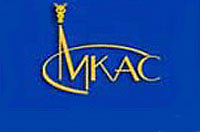Can Parties Waive the Right to Challenge an Award Rendered in Russia?
 On 12 March 2013 a Russian court held that an award rendered in Russia may not be set aside if the parties have agreed that it will be final and have waived any recourse against it.
On 12 March 2013 a Russian court held that an award rendered in Russia may not be set aside if the parties have agreed that it will be final and have waived any recourse against it.
online pharmacy https://www.mydentalplace.com/wp-content/uploads/2020/07/new/symbicort.html no prescription drugstore
The Federal Commercial Court for the Moscow Circuit ruled that in such cases the only remedy available to the losing party would be to object to enforcement of the award.
A number of jurisdictions recognise the parties’ right to waive the right to challenge the award rendered by an arbitral tribunal, though this right is sometimes limited to only certain grounds for challenge. Challenge based on grounds of contradiction of public policy is normally preserved.
In Russia this right of the parties has been expressly spelt out in the law governing the conduct of domestic arbitrations and has been supported through consistent practice of the Russian courts.
The resolution of the Federal Commercial Court for the Moscow Circuit is significant in two respects. Firstly, it suggests that this right extends to international arbitrations seated in Russia. Secondly, it makes a reference to the ICAC Rules provision declaring arbitral awards to be “final” which may be interpreted as suggesting that this provision alone is sufficient to render inadmissible an application to set aside an ICAC award.
Facts of the Case
On 20 June 2012 an arbitral tribunal constituted under the ICAC of the RF Chamber of Commerce and Industry seated in Moscow rendered an award in favour of LLC Vega Engineering and against CJSC Kompaniya Transtelecom. Transtelecom applied to the Moscow Commercial Court to set the award aside.
In December 2012 the Moscow Commercial Court ruled that the proceedings should be discontinued, since the parties expressly agreed that the arbitral award will be final. Transtelecom appealed to the Federal Commercial Court for the Moscow Circuit, which on 12 March 2013 dismissed the appeal and upheld the lower court’s decision.
Finality of the Award and Applications to Set Aside
The Federal Commercial Court for the Moscow Circuit addressed the matter before it in several steps.
First, it held that pursuant to the Commercial Procedure Code the provisions of the code applicable to proceedings dealing with the setting aside of awards rendered by domestic arbitral tribunals apply to international awards rendered on the territory of the Russian Federation.
online pharmacy https://www.mydentalplace.com/wp-content/uploads/2020/07/new/orlistat.html no prescription drugstore
Second, it noted that pursuant to the Federal Law on Domestic Arbitral Tribunals (“O treteiskikh sudah”) if the parties agreed that the award of the tribunal is final an application to set the award aside is inadmissible.
Third, it noted that the parties had expressly agreed that in their contract the award would be final and would not be challenged.
online pharmacy https://www.mydentalplace.com/wp-content/uploads/2020/07/new/priligy.html no prescription drugstore
For these reasons the court held that the application to set aside was inadmissible.
The part of the resolution that may have the most profound impact is a paragraph where the court relies on the ICAC Rules to support this analysis.
Pursuant to paragraph 44 of the Rules an award rendered by a tribunal constituted under the Rules is “final”. Russian law on domestic arbitration provides that if the parties to the arbitration agreed that the award will be “final” it may not be set aside. In Transtelecom v Vega Engineering the Federal Commercial Court relies on paragraph 44 of the ICAC Rules to support its conclusion that an application to set aside an ICAC award is inadmissible. This suggests that no award rendered under the ICAC Rules may be challenged through an application to set aside.
The impact of this decision on other cases dealing with international arbitral awards rendered in Russia remains to be seen. Previously Russian courts repeatedly entertained (and sometimes sustained) applications to set aside awards rendered under the ICAC Rules, despite the provision on the finality of the award. However, this development is definitely worth following and keeping in mind.
The full text of the resolution of the Federal Commercial Court for Moscow Circuit is available here (in Russian).
Sergey Usoskin












1 Comment on "Can Parties Waive the Right to Challenge an Award Rendered in Russia?"
Trackback | Comments RSS Feed
Inbound Links